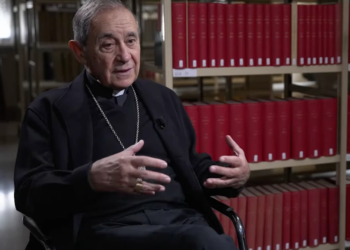Harvard Law professor emeritus Alan Dershowitz said on Newsmax Wednesday that the Supreme Court is poised to move away from using race as a central factor in redistricting decisions.
The Supreme Court heard arguments Wednesday on whether the Voting Rights Act can still compel states to draw districts favorable to minority voters. Appearing on “The Record with Greta Van Susteren,” Dershowitz said the Court appears ready to apply the same reasoning it used in the affirmative action rulings to voting districts, curbing efforts to design congressional maps that favor specific racial groups.
“This is not like college admissions, where you can move to a meritocracy, and we know what a meritocracy means. But you can’t have a meritocracy when it comes to creating a district. Creation of the district either will help black people or will hurt or will help white voters or will hurt them. There’s no neutral principle,” Dershowitz told host Greta Van Susteren. “And I suspect the Supreme Court is moving away from focusing on race in the electoral context, as well as in the college-admission context. So if I had to make a prediction, I would predict that the district will not do well in front of the Supreme Court.”
Dershowitz referenced Justice Felix Frankfurter’s 1940s warning that the Court should avoid the “political thicket” of gerrymandering.
WATCH:
“Back in the 1940s, Justice Frankfurter purposely and very, very correctly talked about the Supreme Court staying out of the thicket, the political thicket, of racial gerrymandering and other forms of gerrymandering, because there’s no neutral answer to this,” Dershowitz said. (RELATED: Alan Dershowitz Explains Why Trump Got Results While Obama Fell Short)
Dershowitz said four key justices will likely determine the outcome.
“There’s four key votes in this. And I suspect we’re going to see a lot less sympathy for creating legislative areas which guarantee black seats in Congress and in other elected offices. I think we’re going to see a diminution of the sensitivity toward kind of creating affirmative action in legislative redistricting,” Dershowitz said.
The Supreme Court signaled Wednesday that it may soon end the practice of drawing congressional districts based on race. During arguments in Louisiana v. Callais, Justice Brett Kavanaugh, whose vote could decide the case, along with that of Chief Justice John Roberts, pressed civil rights advocates on when race-based remedies should come to an end.
“The issue, as you know, is that this court’s cases in a variety of contexts have said that race-based remedies are permissible for a period of time, sometimes for a long period of time, decades in some cases, but that they should not be indefinite and should have an endpoint,” Kavanaugh said. “What exactly do you think the end point should be for the intentional use of race to create districts?”
Black voters challenged Louisiana’s 2022 map for including only one majority-black district, leading a court to order the state to redraw it. After lawmakers approved a new map in January 2024 to create a second majority-black district, a group of non-Black voters sued, saying the plan amounted to an unconstitutional racial gerrymander.
While the Supreme Court first considered Louisiana v. Callais during its last term, it reheard the case this term to decide whether intentionally creating a second majority-minority district violates the Constitution. Liberal justices and civil rights advocates said that limiting Section 2 of the Voting Rights Act could undermine minority representation established through past rulings like Allen v. Milligan.
All content created by the Daily Caller News Foundation, an independent and nonpartisan newswire service, is available without charge to any legitimate news publisher that can provide a large audience. All republished articles must include our logo, our reporter’s byline and their DCNF affiliation. For any questions about our guidelines or partnering with us, please contact licensing@dailycallernewsfoundation.org.








![Florida Officer Shot Twice in the Face During Service Call; Suspect Killed [WATCH]](https://www.right2024.com/wp-content/uploads/2025/12/Inmate-Escapes-Atlanta-Hospital-After-Suicide-Attempt-Steals-SUV-Handgun-350x250.jpg)








